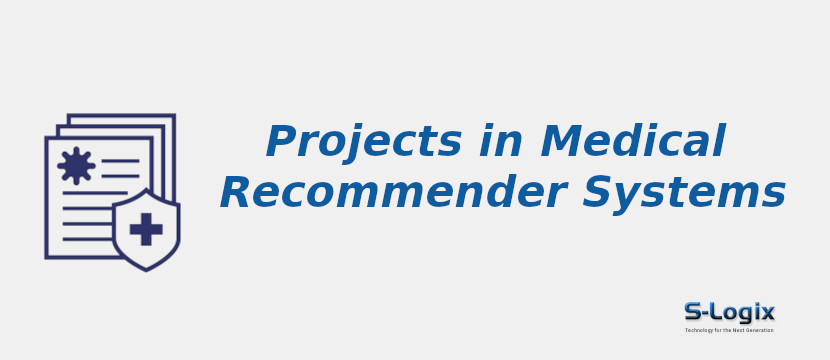Project Background:
The project on Medical Recommender Systems is motivated by the increasing complexity and abundance of medical information available, coupled with the imperative to provide personalized and effective healthcare recommendations. In contemporary healthcare, where vast amounts of data from diverse sources are generated, including electronic health records, medical literature, and patient histories, the need for intelligent systems to assist healthcare practitioners and patients in decision-making has become crucial. The project recognizes the challenges medical professionals face in navigating this information landscape and aims to leverage advanced recommender systems to streamline the process. By integrating machine learning algorithms and data-driven insights, the project seeks to develop a sophisticated medical recommender system that offers tailored diagnosis, treatment options, and preventive care recommendations. It underscores the significance of harnessing technology to enhance medical decision support, improve patient outcomes, and optimize the utilization of healthcare resources through personalized and context-aware recommendations.
Problem Statement
- The problem addressed by Medical Recommender Systems lies in the overwhelming volume of medical information available and the need for personalized guidance in healthcare decision-making.
-
In the current healthcare landscape, healthcare professionals and patients face challenges in efficiently navigating vast datasets and diverse medical resources to make informed decisions.
-
The absence of intelligent systems tailored to provide personalized recommendations for diagnoses, treatment plans, and preventive measures contributes to inefficiencies in healthcare delivery.
-
Moreover, ineffective decision support tools may lead to suboptimal patient outcomes and increased healthcare costs.
-
Addressing these challenges will not only empower healthcare practitioners with valuable insights to actively participate in the healthcare journey, foster a more efficient and personalized approach to medical decision-making.
Aim and Objectives
- Enhance healthcare decision-making by developing a sophisticated Medical Recommender System, leveraging machine learning for personalized and context-aware recommendations.
-
Develop a comprehensive understanding of medical data sources and user needs.
-
Design and implement machine learning algorithms for effective medical recommendation.
-
Create a user-friendly interface for seamless interaction with the recommender system.
-
Tailor recommendations for diagnoses, treatment plans, and preventive measures.
-
Ensure the systems adaptability to evolving medical knowledge and patient data.
-
Evaluate the system performance in terms of accuracy, efficiency, and user satisfaction.
-
Facilitate healthcare practitioners and patients in making informed and effective medical decisions.
Contributions to Medical Recommender Systems
1. The project contributes by providing personalized decision support in healthcare tailoring recommendations based on individual patient profiles, medical histories, and specific needs.
2.
Developing an intelligent recommender system aims to streamline the vast and complex landscape of medical information, enabling healthcare patients to navigate efficiently through relevant data.
3.
Integrating machine learning algorithms contributes to more informed clinical decision-making, offering valuable insights into diagnoses, treatment options, and preventive measures.
4.
The recommender system empowers patients to actively participate in their healthcare journey by providing personalized information, fostering a sense of control and understanding.
5.
Through context-aware recommendations, the system helps optimize the utilization of healthcare resources, ensuring that interventions are targeted and effective.
6.
The development of a user-friendly interface enhances the accessibility of medical information, making it easier for healthcare professionals and patients to interact with and benefit from the recommender system.
Deep Learning Algorithms for Medical Recommender Systems
- Recurrent Neural Networks (RNN)
-
Long Short-Term Memory (LSTM) Networks
-
Convolutional Neural Networks (CNN)
-
Generative Adversarial Networks (GAN)
-
Hybrid Models (Combining Collaborative and Content-Based)
-
Variational Autoencoders (VAE)
-
Restricted Boltzmann Machines (RBM)
-
Deep Belief Networks (DBN)
-
Explainable AI Models for Medical Recommendations
Datasets for Medical Recommender Systems
- MIMIC-III (Medical Information Mart for Intensive Care III)
-
UCI Drug Review Dataset (DrugLib.com)
-
UCI Adult dataset (for demographic information)
-
PubMed 200k RCT (Randomized Controlled Trials) dataset
-
DementiaBank dataset
-
PhysioNet Challenge 2012 dataset
-
The Cancer Imaging Archive (TCIA)
-
Diabetes dataset (from UCI Machine Learning Repository)
-
Breast Cancer Wisconsin (Diagnostic) dataset
-
Framingham Heart Study dataset
-
Ohio State University Medical Center dataset
Performance Metrics
- Precision
-
Recall
-
F1 Score
-
Sensitivity
-
Specificity
-
Accuracy
-
Coverage
-
Area Under the Receiver Operating Characteristic Curve (AUC-ROC)
-
Root Mean Square Error (RMSE)
-
Mean Absolute Error (MAE)
-
Normalized Discounted Cumulative Gain (NDCG)
-
Mean Reciprocal Rank (MRR)
Software Tools and Technologies
Operating System: Ubuntu 18.04 LTS 64bit / Windows 10
Development Tools: Anaconda3, Spyder 5.0, Jupyter Notebook
Language Version: Python 3.9
Python Libraries:
1.Python ML Libraries:
- Scikit-Learn
- Numpy
- Pandas
- Matplotlib
- Seaborn
- Docker
- MLflow
2.Deep Learning Frameworks:
- Keras
- TensorFlow
- PyTorch
